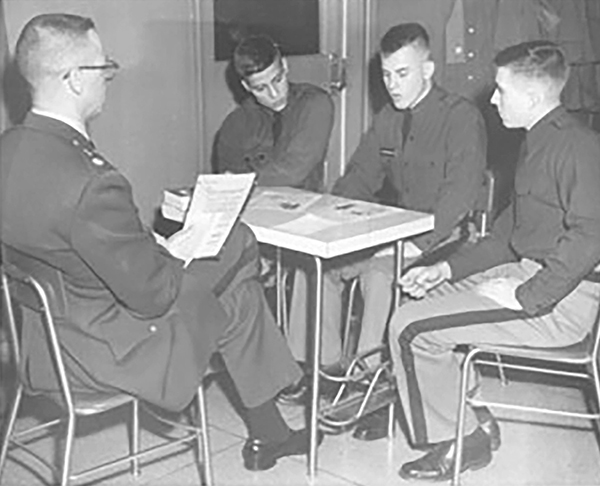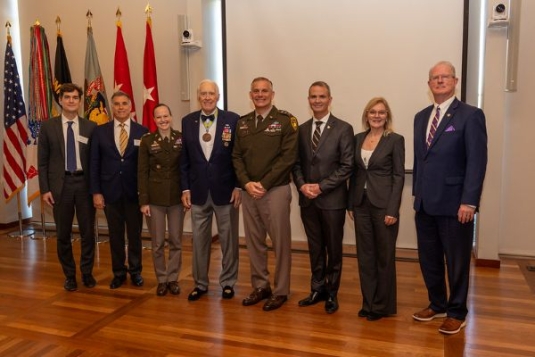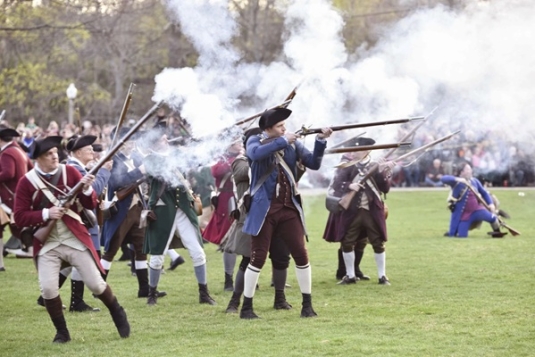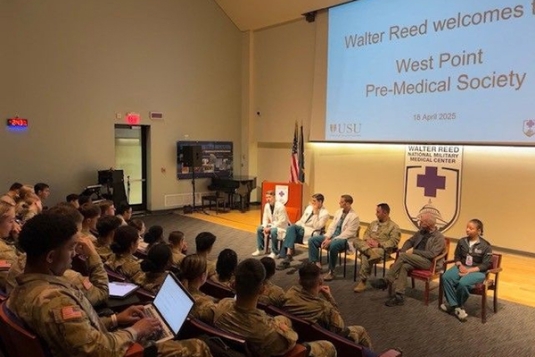By Keith J. Hamel, WPAOG staff
Twenty graduates from the Class of 1969 never forgot what they learned from “Herr Major” Paul Parks ’55 when he had them as students in his Advanced German class nearly 60 years ago.
On February 5, 2024, Colonel Paul Parks ’55 (Retired) was laid to rest in the West Point Cemetery. Four members of the Class of 1969, representing a larger cohort of their classmates, were on hand to bid Ruhe in Frieden to the officer who taught them in his Advanced German course when they were plebes and yearlings back in 1965-67.
Sometime during their first week of Beast Barracks, the new cadets from the Class of 1969 indicated their language preference. At that time, the Academy offered three levels of instruction—standard, intermediate, and advanced—for its three most prevalent languages: French, Spanish, and German. Come the start of the fall semester, a group of 20 cadets, most of whom had taken German in high school (though some, like Dr. Brian Owens ’69, hardly felt that they had mastered the skill set to think and converse in German), found themselves in LG151/2, then Major Parks’ Advanced German class.
“On the first day of class, Parks walked into the classroom, introduced himself, and congratulated us on being assigned to Advanced German,” says Colonel Keirn “KC” Brown ’69 (Retired). “He then announced with emphasis, ‘These are the last words you will hear me speak in English.’” For the remainder of the course it was alles auf Deutsch (“everything in German”).
“I was somewhere between awe and shock during that first class,” says Gene Murphy ’69. “Parks came at us full bore speaking German at a fast pace.” Reportedly, the major never slowed down the rest of the course either, recognizing the difference in his students’ capabilities but not lowering his standards nor expectations, which had to do with both coursework and being a cadet at the United States Military Academy at West Point.
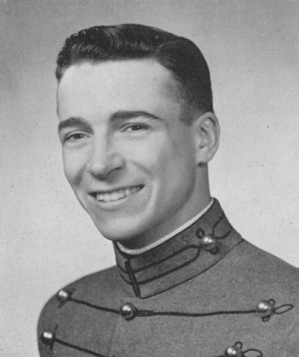
“We learned quickly not to come into his presence unless our bearing and personal appearance were immaculate,” says Brown. “He checked every one of us out every class session for proper shoeshine, tarnished belt buckles, gig line, dress off, the knots of our ties and, during plebe year, our shaves.”
Lieutenant Colonel Phil Clark ’69 (Retired) notes that Parks’ standards and expectations went both ways. “He was always well prepared himself, just as he expected us students to be well prepared for his class.”
According to Colonel Richard “Bob” Seitz ’69 (Retired), Parks’ lessons were not only about the German language and grammar but also included German literature (reading poetry from Goethe and Schiller) and German historical military readings, which Seitz says helped prepare his classmates for their later military careers.
“We began every session either singing a German marching song or reciting lines by a German poet from the Enlightenment period,” says Brown. “We recited every session, had a demanding weekly writing assignment, and endured writs at least twice a week—and his writs always consisted of both oral and written portions.” Although Parks proved to be what Brown calls “a hard taskmaster,” Brown states that he and his classmates “came to appreciate him as an indelible example of what an Army officer should be: firm but fair, setting and demanding high standard of performance, and exuding confidence, competence, and caring leadership.” And given that Brown and his classmates had Parks as their instructor three days a week (being required to attend class on Saturdays in the sixties) for two solid years, spending more time with him than any other instructor or tactical officer during their entire four years as cadets, Parks’ example made a lasting impact, or nachhaltiger einfluss, on the cadets from the Class of 1969.
“A strong bond of trust and affection developed thanks to our unique circumstance,” Seitz says. “This did not happen in any other courses for me in four years at West Point.”
“Major Parks’ German class stood out among my classes because of his encouragement to learn, even within the strict military framework of the Academy,” says Lieutenant Colonel Peter Heesch ’69 (Retired). “The course was demanding but at the same time enjoyable.” Heesch also notes that Parks took an interest in the personal lives of his Class of 1969 cadets, tracking their activities in corps squad, club, or company intramural sports, often attending their competitions and commenting on their performance or success in other extracurricular activities. “And it didn’t end with graduation,” says Heesch. “He followed our careers, and we wanted to stay in touch with him because of the interest he took in us as individuals.”
“Colonel Parks was proud to say that one of his students became American Ambassador to Germany,” says Ambassador Robert Kimmitt ’69, who received that appointment in September 1991. “I was even prouder to say that Paul Parks played a crucial role in my being appointed as the first American Ambassador to a united Germany in over six decades.”
Indeed, most of the “Best of the Line” group say that Parks’ Advanced German course had an impact on their career or their time in the Army. “It provided a very good foundation for my first assignment in Germany, and especially later with VII Corps in Stuttgart,” says Major George Albrecht ’69 (Retired). It also had a profound personal effect on a couple of them.
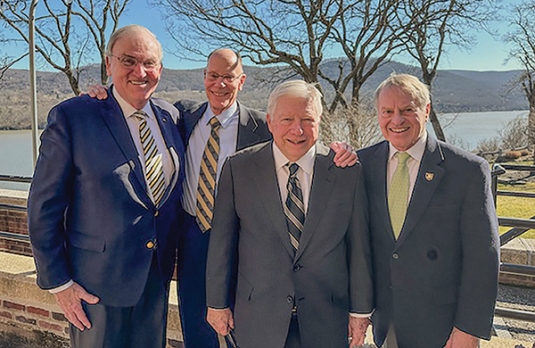
“Parks’ course was very influential in my selection as an Olmsted Scholar and my opportunity to study for two years at the University of Bonn,” says Clark. “That’s where I met and married my wife, a native of a small city near Bonn, and we brought up our children in a household speaking German.”
Over the decades, the 20 graduates from Parks’ Advanced German class have reminisced fondly (in German, of course) about what they learned from “Herr Major” Parks, often chuckling about the same stories over and over. “The one in which he wrote up my roommate, David Hayes, for not having properly shined shoes never gets old,” says Albrecht. What’s amusing (and, in fact, telling) is that some of them, like Brown, found themselves applying Parks’ exacting standards in their section room when they came back to teach at the Academy. Nachhaltiger Einfluss, indeed.
What do you think? Click here to answer 3 questions.

